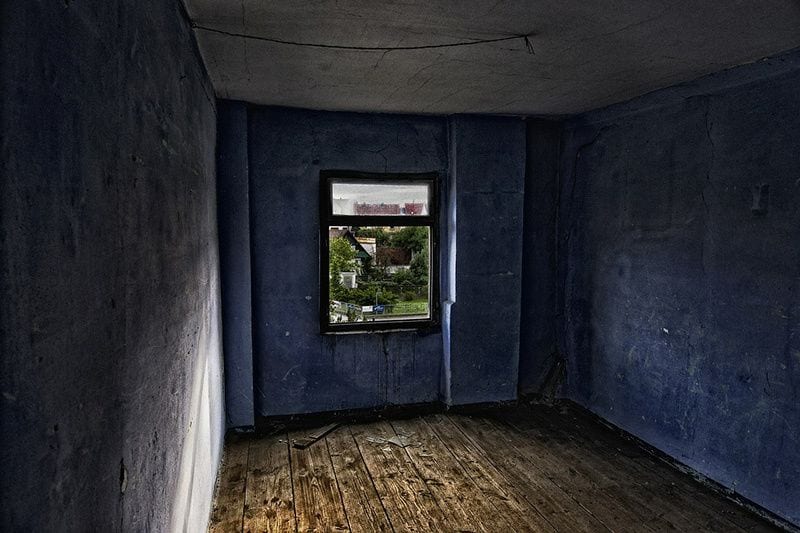
The audience for contemporary teen tragic literature in 1993 never had to deal with the magic formulas of John Green’s The Fault in Our Stars (Dutton, 2012) or Jay Asher’s 13 Reasons Why (Razorbill, 2007). Eager readers of the early ’90s had, of course, been inundated by a range of renditions of the romantic inevitability of Shakespeare’s Romeo and Juliet, and the eternal longings in the works of Sylvia Plath and Anne Sexton never failed to make their way into high school freshman college English literature classes. It can be argued that Jeffrey Eugenides’ debut novel, The Virgin Suicides (reissued here by Picador) ushered in our era of fascination with the tragically dead or generally emotionally anguished beautiful teen female. To take that final step, that ultimate act of definitive agency, seems the greatest act of teen defiance.
If contemporary readers approach this 25th anniversary release of Eugenides’ debut novel simply as a teen novel, or a book in which suicide is the primary means of communication, they’re missing the point. He won a much deserved Pulitzer Prize in 2003 for
Middlesex, but The Virgin Suicides still reads as a disturbingly assured debut. Start by reading writer Emma Cline‘s incisive Introduction and understand she’s serious when she notes that The Virgin Suicides is a book “…that operates like a weather system with its own distinct logic…”
Indeed, this story of how the five separate suicides of the Lisbon girls in the ’70s still haunted the narrators nearly 20 years later is as graceful and stunning now as it was when first released. One can almost imagine the male narrators (always referring to themselves as “we”) still grappling in 2018 with the deaths of their neighborhood princesses almost 45 years earlier. It’s about grappling with manhood, understanding the mysteries of enforced purity, and containing urges that can only be expressed under a blood moon sky atop a roof somewhere, like a cat in heat. It’s about the literal environment becoming so overcome with a lime green haze that even the mighty elm trees the Lisbon girls so desperately wanted to survive in the front yard of the house where they were kept as virtual prisoners see no way out but to surrender to dutch elm disease. Innocence is only the first of many life forces that dies in the course of this novel.
The girls are a mystery for the boys telling this story. They are exhibits in a court case, pictures forever captured in a dusty album. One boy comes back from inside the Lux household and reports on what he finds:
“He came back to us with stories of bedrooms filled with crumpled panties, of stuffed animals hugged to death by the passion of the girls, of a crucifix draped with a brassiere…”
Who are these girls? Why do they continue to haunt these (now) men? The narrator tries to convince himself that they’re not “…five replicas with the same blond hair and puffy cheeks…” They are mysteries, plain and simple. Eugenides lays out the story with everything as an artifact. After the first Lisbon death, the narrator notes: “Her mind no longer existed in any way that mattered… she had succeeded, on the second try, in hurling herself out of the world.” It’s simply heartbreaking, reading this mix of factual reporting of the past as the narrator sees it and the fact that the acts are still recalled with wonder and repulsion.
Everything is still a mystery. Nothing is ever resolved. The narrator concludes that Cecilia (the first to kill herself) was the weird sister. The diary she leaves “…is an unusual document of adolescence in that it rarely depicts the emergence of an unformed ego.” The diary (which we never read but understand through the narrator’s perspective) depicts the sisters as a single entity. Femininity is still a mystery for the boys of that time and the men they became. Eugenides writes:
“We felt the imprisonment of being a girl, the way it made your mind active and dreamy… We knew that the girls were our twins, that we all existed in space like animals with identical skins, and that they knew everything about us…”
The Virgin Suicides is filled with sensations. Each house in the neighborhood has a smell: skin, mayonnaise, stale popcorn, “…a mix between a funeral and a broom closet.” It’s almost a stifling experience to wade through this narrative, but that’s the way it’s supposed to be. We are stifled, subdued, but we are not smothered and suffocated. The narrator remembers the era with regret: “No one ever understood what got into us that year, or why we hated so intensely the crust of dead bugs over our lives.” As the story progresses and the boys observe Mr. Lisbon, they sense he can’t breathe inside his house. The girls never leave the interior after a while, and they smother him. For Mr. Lisbon, “…children were only strangers you agreed to live with.”
There’s a calculated and detached mood to this novel that works miraculously as a way to bring readers into the story. Everything has been recorded. Exhibits are available for inspection. We learn that witnesses and participants in the short lives of the Lisbon girls are called upon later to provide further reflection. Trip Fontaine, the role model short-term boyfriend of Lux Lisbon, “…was reticent on the subject, in accord with his vows of faithfulness to the four hundred and eighteen girls and women he had made love to during his long career.”
How do the four surviving Lisbon girls cope after the death of their sister, Cecilia? The school provides healing programs, counseling, but the Lisbon girls declined. “None of the teachers insisted on their participating… all the healing was done by those of us without wounds.” Experts with bogus MSW degrees provide help that makes no difference. Healing and grieving and survival happens on their own terms and in their own time. Lux deals with being confined to the house with her sisters by becoming a “carnal angel” and meeting young men on the roof of their house for random anonymous sex. The narrator and his friends watch, and later receive testimony about it from the male participants:
“They spoke of being pinned to the chimney as if by two great beating wings, and of the slight blond fizz above her upper lip that felt like plumage.”
Much of what drives the reader here is the way Eugenides carefully creates a world where these suicides actually happened. He wants us to believe that these were actual girls, and their suicides resulted in a veritable marketplace of acclaimed published psychological studies. It’s as if Cecilia caught an airborne virus and it was released after her death. He writes of contagious suicide, making the urges palpable. Quite simply, while the narrator goes in circles trying to make connections between the pain he and his friends felt as boys in those times and the pain manifested in suicide the Lisbon girls felt, he realizes it has to come down to something simple: “It is speaking to us. But we can’t hear.”

A year passes between the death of Cecilia and the eventual final act where the remaining four girls kill themselves. The air literally becomes thick with mist and bugs. Beloved trees are sacrificed to the altar of progress. Lux becomes a “carnal angel”, and the boys find the most potent way to communicate with their housebound maidens. They call on the telephone and instead of speaking they drop the record needle on some tracks of the time: James Taylor’s version of “You’ve Got a Friend”, The Rolling Stones’ “Angie”, and the girls play Janice Ian’s “At Seventeen” and Gilbert O’Sullivan’s “Alone Again (Naturally)”. It’s a scene that was perfectly captured by Sofia Coppola (though with a slightly different playlist) in the 1998 film version of The Virgin Suicides, but images can’t match the painful longing of Eugenides’ narrative here:
“Song after song throbbed with secret pain. We passed the sticky receiver from ear to ear…”
The heart breaks in moments like these, and readers receptive to the pain will relate to the way pop music of the ’70s could connect outsiders to one another. The story rolls along to its inevitable conclusion and we learn more about the aftermath of the suicides. The coroner “…spoke of the incredible cleanliness of the girls’ bodies…” The girls had surrendered to an incomprehensible sadness. Debutante season follows, the weather gets murky, and young women more suitable to such a tradition are presented to society. “Debutantes cried over the misfortune of coming out in a season everyone would remember for its bad smell.” The girls look monstrous in their dresses as they are displayed to the community. Our narrators remember only the suicides:
“The Lisbon girls made suicide familiar… In the end, the tortures tearing the Lisbon girls pointed to a simple reasoned refusal to accept the world as it was handed down to them, so full of flaws… They made us participate in their madness… It didn’t matter in the end how old they had been… but only that we had loved them, and that they hadn’t heard us calling…”
The definitive romance of literary suicide has always been problematic, from the plethora of doomed characters in Shakespeare’s plays to no end of similar endings in contemporary films and books. In a strange way perhaps best suited to the lush beauty through every page of The Virgin Suicides, this is a story where the title act is rendered in a more devastating way than many might care to admit. Eugenides tells this story in a clinical way, testifying to events recalled that can never be fixed again even if the chance presented itself.
The girls are front and center in this narrative, Eugenides’ work is a perfectly balanced evocation of how unfulfilled longing and the toxic siren call of applying a permanent solution to a temporary condition is not gender exclusive. Those who read The Virgin Suicides in 1993 and return to it today will marvel at how its effect remains so desperately heartbreaking, tender, graceful and beautiful. Those who approach it today with no preparation will treasure this masterpiece of mood, atmosphere, and the palpable ghosts of lingering regret.


![Call for Papers: All Things Reconsidered [MUSIC] May-August 2024](https://www.popmatters.com/wp-content/uploads/2024/04/all-things-reconsidered-call-music-may-2024-720x380.jpg)



